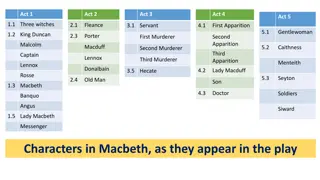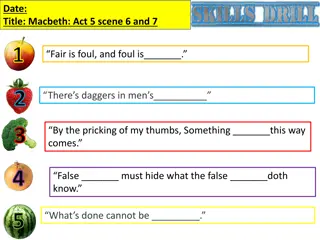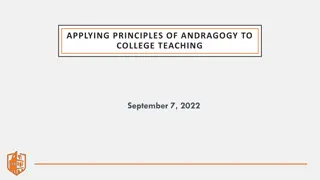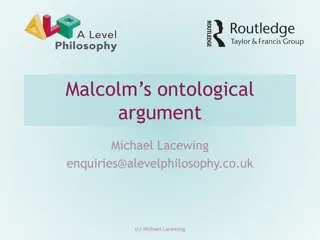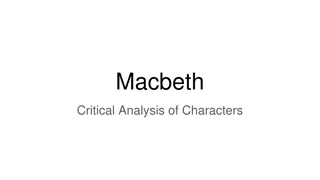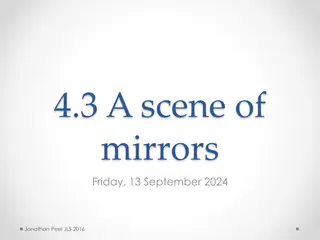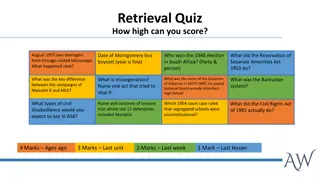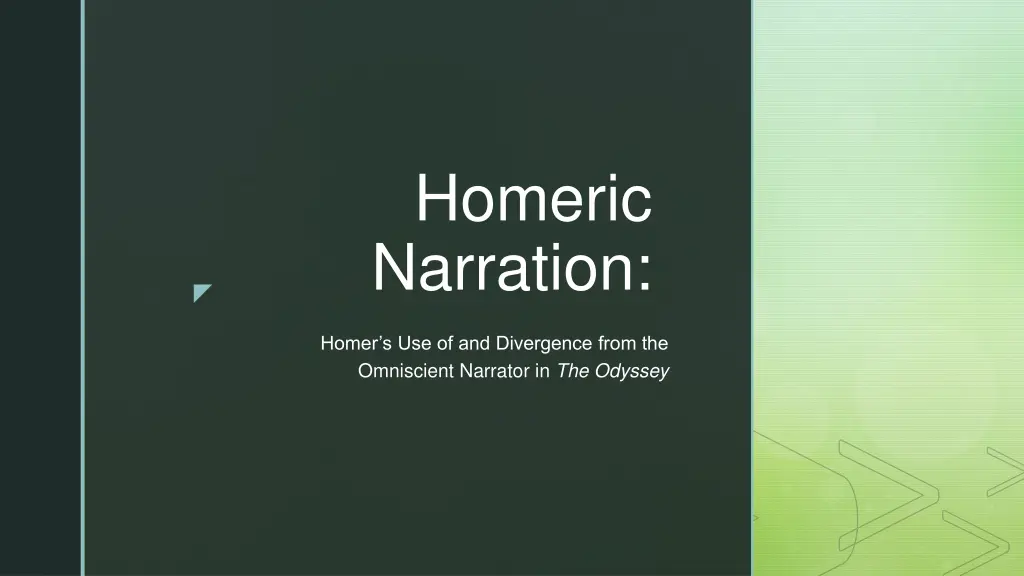
Homeric Narration: Divergence from the Omniscient Narrator in The Odyssey
Explore Homer's unique narrative style in The Odyssey, delving into the use of false expectations, deceptive plot twists, and delayed beginnings. Discover how Homer's deceptive storytelling techniques create a chaotic and immersive world for readers, challenging traditional narrative conventions.
Download Presentation

Please find below an Image/Link to download the presentation.
The content on the website is provided AS IS for your information and personal use only. It may not be sold, licensed, or shared on other websites without obtaining consent from the author. If you encounter any issues during the download, it is possible that the publisher has removed the file from their server.
You are allowed to download the files provided on this website for personal or commercial use, subject to the condition that they are used lawfully. All files are the property of their respective owners.
The content on the website is provided AS IS for your information and personal use only. It may not be sold, licensed, or shared on other websites without obtaining consent from the author.
E N D
Presentation Transcript
Homeric Narration: Homer s Use of and Divergence from the Omniscient Narrator in The Odyssey
Narration Style: The Odyssey is written in an omniscient 3rdperson narrative Invocation of the Muse Distinction between Muse and Prophet Bi-planar Omniscience Mythical and Physical Causation and Correlation Fate, Destiny, and Divine Intervention
False Expectations as a Plot Device Building expectations before deviating from them is prevalent aspect of literature Suspense, tension, false leads, and surprise The Odyssey gives away the ending in the opening passages The process becomes the vehicle that drives narrative direction, not potential results Pioneer of plot format for mystery novels, movies, and mini-series
Homer s Deceptions Extend Beyond Unanticipated Plot Twists Narrator strongly suggests or implicitly promises specific narrative direction Ends up misleading Creates aimlessly meandering and defiant tone that mimics the chaotic setting of the epic Maintaining guise of consistent omniscience pacifies reader into false sense of security Same feelings of certainty, confidence, and conviction stoked in Homer s characters through sorceresses, prophets, and gods
Opening Lines and Delayed Beginnings Aimlessly meandering and defiant tone of epic established right away Narrator questions the muse about when the story begins Muse replies that the epic begins with Odysseus escape from Calypso s island The starting point the muse mentions is not addressed until book five over 2,000 lines later Immerses reader into chaotic world of Odysseus
Circe, Teiresias, and an Unnecessary Trip to the Underworld Circe builds false sense of anticipation for reader and for Odysseus Teiresias will puncture plot armor preventing Odysseus from returning home Ends up as another diversion detour Circe possessed pertinent directions all along Elpenor s role Fusion of narrative omniscience and Homeric misdirection Narrative/Literary device to get Odysseus to back track to Circe
The Apologue: Books 9 - 12 Odysseus, the unreliable narrator Imbeds and immerses the reader in chaotic and deceptive world Aligns the reader with gullible Phaecians Sows doubt in Homeric stories for the reader Validity/Omniscience/Unbiased
Other Examples of Narrative Deviation False Expectations Phaecians presented potentially threatening to Odysseus, but are not hard to win over ( Books 6,7) Arete does not play an essential role in the reception for Odysseus as we are led to believe (Books 6,7) Telemachus awaits signal from Odysseus to start fighting. He and the reader expect a standard battle, not the bow-contest. (Book 20)






